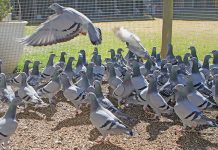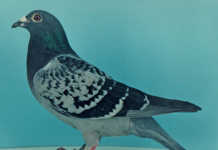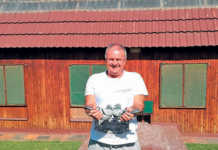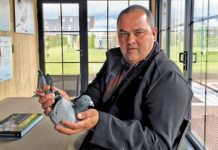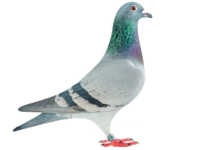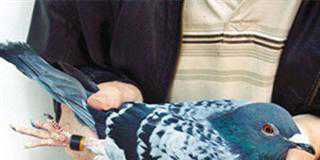Having raced pigeons for many years, Kevin came to understand how dangerous the ignorant and indiscriminate use of pigeon medication can be. So he began his research as a lay student under a professional veterinarian, investigating how to combine science with practical wisdom.
Valuable lessons
As Kevin learned how to use a microscope and do crop smears and vent tests, he was increasingly convinced of how important it is to diagnose a ’pigeon’s state of health correctly before administering any medication.
He did extensive pre- and post-treatment testing for, among others, crop canker, bacteria levels, yeast, fungi, white blood cell levels, hexamitosis, giardia, flotation (worms and coccidia), mites, heterophils, E coli and salmonella. From these tests, he made the following deductions, shared here for the first time: Sick or unwell pigeons do not win races in big competitions.
Pigeons that are a little ailing are in fact sick. Ill pigeons infect other pigeons. Pigeons must be checked regularly by professionals. Don’t wait for a bird to become ill before you examine it further. Disease could already have spread to the whole flock and thereby ruin your racing season. If fanciers did more to protect the health of their stock birds, they would better protect their offspring during the growth and weaning stage. Once correctly diagnosed, you must apply the exact prescription to achieve the best results. You may need to adjust the medication slightly depending upon where you live. In a warm climate, and when the birds are feeding young, their water intake is higher. As such, the parents, the youngsters, or both, could be overdosed.
In cold conditions the water intake is too low and thus the pigeons could get too little of the active substance. It is advisable to give the medication in tablet form. Medication fails when it has expired or has been stored at the wrong temperatures. Medication fails when given incorrectly. Treatment for malaria is a common example. Medication fails when a prescribed follow-up treatment is not carried out. In the case of certain viral diseases, there are both chicken and pigeon strains, both of which have to be treated to protect your flock. one-day treatment has no value as it will not have the desired result.
Muscle and wing disease, young bird sickness and salmonella can all show the same symptoms, but must be diagnosed independently. The biggest killer of our racing pigeons on the road is dehydration. It weakens the whole body, affects all the organs and taxes the immune system, thereby exposing the birds to disease.
More advice and treatment tips
Having tested medications available on the world market, Kevin recommends the following treatments for racing pigeons: Water-soluble Medilyte from Medpet aids the recovery of strained muscle tissue and assists the return of muscle strength. For young bird sickness he recommends Avivet from Medpet. This broad-spectrum water-soluble antibiotic treats a wide range of bacteria, including many that are life-threatening. It is fortified with vitamins to ensure a swift recovery. Medizole from Medpet is the most effective combination treatment for trichomoniasis, hexamitosis, cochlostomiasis and giardia. is safe to use during the breeding season. Ronsec from Medpet is a single-dose treatment for hyper-resistant trichomoniasis. It contains a combination of two particularly safe active ingredients that work together in a slow-release tablet formulation. The success rate is 98%.
The results
One of the fanciers living in the Sunderland area approached Kevin to manage his pigeons’ health for the season. This fancier participated in the 2006 Young Birds Series. he results speak for themselves: seven Federation wins and 86 positions in nine races against of 2 500 to 3 000 pigeons. Well, Kevin, you are most welcome to relocate to South Africa when you feel ready. Or should we send a few guys over there for tuition? Let us know soon. – Thomas Smit Contact Thomas Smit on (011) 680 4778, e-mail [email protected]. |FW


